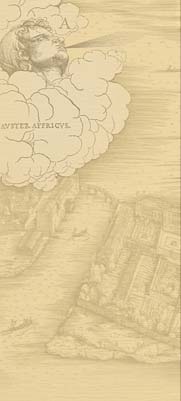Glossary
- denaro
- The term used in Michael's mathematical treatise for the Venetian silver grosso coin. Pl. denari.
- ducat
- A gold Venetian coin, also used as a currency denomination throughout Europe in Michael's time.
- Eastern Roman Empire
- The Greek-speaking half of the Roman Empire, also called the Byzantine Empire. (See Byzantine Empire)
- ecclesiastical calendar
- A church calendar of the Christian year, including the calculated dates of feasts and festivals.
- Emperor John VIII
- John Palaeologus, 1390-1448; ruler of the Byzantine Empire, 1425-1448. By the end of his reign, much of the Byzantine Empire had been conquered by the Ottoman Turks. His brother and successor, Constantine XI, would be the last Byzantine emperor.
- equinox
- The period in spring or winter when the sun crosses the equator and days and nights are of equal length.
- first-order equation
- An algebraic equation whose quantities are of the first power and an added constant (e.g., y = 3x + 4).
- Flanders
- Now part of Belgium, during the Middle Ages a prosperous region that included parts of France, Belgium, and the Netherlands.
- fore
- Toward the bow, or front, of a vessel.
- furl
- To roll up a sail.
- futtock
- Upper timber of an individual frame or rib, joined to a lower timber attached to the keel.











